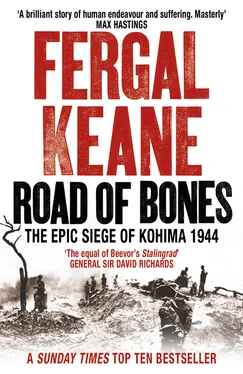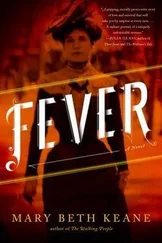On the journey back east from England after the First World War, Foucar heard his travelling companions agree that the old days were gone. ‘Things aren’t what they were,’ an anonymous passenger told him. ‘The young Burman considers himself as good as his master.’ But this was still the colonial Burma of George Orwell’s Burmese Days , torpid, self-satisfied, a haven for mediocrities who would have struggled in a more dynamic or egalitarian setting. Although Burmese politicians sat in a legislative assembly and there was a Burmese prime minister, real power remained in the hands of the Governor, who controlled foreign affairs and security.
The C-in-C Far East, Sir Robert Brooke-Popham, offered an acerbic view of the colonial Englishman in Burma, all the more surprising because Brooke-Popham had been a stout defender of the rights of white settlers in Kenya when he was Governor there in the late 1930s. There was, he wrote, ‘a tendency among Englishmen to regard themselves as naturally superior in every way to any coloured race, without taking steps to ensure that this is always a fact … a failure to develop a sympathetic understanding with the Burmese … the majority of non-official Englishmen in Burma were more concerned making money and getting high dividends from their investments than of benefiting the native population.’
At the start of the 1930s an uprising led by the rustic monk and necromancer, Saya San, shook British rule. But it was the Indian minority rather than the British who suffered most. A colonial report noted that the Indians had ‘driven the more apathetic Burman out of the more profitable means of employment’. When violence erupted the Indians were the first to be attacked. A prominent nationalist leader denounced them as ‘birds of passage who have come to this land to exploit by fair means or foul in the fields of labour, industry or commerce’. Despite superior British firepower it took eighteen months to subdue a revolt that shook the British and inspired young nationalists to escalate their agitation against colonial rule. As Emile Foucar noted, ‘The indications were plain to those who would read them; yet when manifested amongst students and the educated classes they were brushed aside as the complaints of disappointed office-seekers envious of the white man. This attitude of self-complacency was comforting to those of us who saw a long continuance of British domination.’
At the same time, Burmese intellectuals were absorbing ideas and theories spreading from Britain. One Rangoon writer observed that ‘in the 1930s, so many of our students read the books which came out to us from Victor Gollancz’s Left Book Club in London. The ideas of Marx reached Burma not from Russia but by way of England.’ The generation of urban Burmese that came of age in the 1930s was educated and politically aware, and some of its leading figures were already in contact with the intelligence officers of a new imperial force.
The Japanese dressed their intervention in the clothes of Asian brotherhood. By the late 1930s Japanese spies were busy recruiting agents and attempting to create a pro-Tokyo army which would act as a fifth column on the outbreak of war. Several of the nationalist leaders went to Japan for military training, among them Aung San, the father of future pro-democracy leader Aung San Suu Kyi. This was the simmering Burma that lay beyond the European clubs and garden parties of Rangoon on the eve of war with Japan, and which thousands of British, Indian and Burmese troops would be asked to give their lives to defend.
The weekend of the Governor’s Cup race meeting in December 1941 was the last great gala of imperial Burma, although few, if any, of those who were there would have sensed the imminence of its demise. The dancers who packed into the ballroom of the Strand Hotel on race night were confident that Britannia still ruled the East and would continue to do so for a long time to come. For Emile Foucar the highlight of the evening was when a ‘stout lady, popular with local audiences … sang a comic song, concluding it by throwing up her skirt to show us the seat of her panties emblazoned with the Union Jack. How we cheered!’ The only irritant was the absence of fresh air, brought about by a practice blackout ordered by the military authorities. Not that most people in that cheery crowd believed a blackout was necessary. As the racegoers made their way home in the muggy early hours, the Japanese seemed a very long way away.
Twenty-four hours later, on 8 December 1941, Emile Foucar woke up to the news of the Japanese attack on the Americans at Pearl Harbor and the landings in Malaya, some five hundred kilometres from Burma. More worrying still, Japanese troops were also moving into Thailand. An agreement had been reached with the Thai government to allow Japanese forces free passage to the Burmese border. There was fierce fighting with some Thai troops, unaware of the agreement, who opposed the Japanese landings in the south. Yet Rangoon was quiet that morning. To Corporal Fred Millem the news came as a relief. Rumours of war had been incessant. ‘The suspense had been snapped and we knew where we stood. To me it was no surprise … when it came we were almost joyful, for it seemed certain suicide for Japan – her last desperate throw … Singapore, utterly and completely impregnable, still stood between the Japs and Burma.’
Emile Foucar immediately joined up to do his bit for the defence of the empire. As a former officer he was given the temporary rank of lieutenant colonel, working on intelligence and propaganda. On 10 December he went into the radio room at headquarters and found an operator anxiously trying to restore a connection. The man had heard something about the ships HMS Prince of Wales and HMS Repulse , which had been dispatched east the previous autumn to deter the Japanese, but he could gather no details apart from the fact that the voice on the wireless was referring to them in the past tense. It was only the following day that Foucar learned that more than eight hundred men had been killed, and British naval power humbled, when Japanese bombers sank the ships off the coast of Malaya.
By the middle of December a Japanese force had crossed from Thailand and seized the strategically important Victoria Point airfield, vital to the RAF if it was to bring in reinforcements. Two days before Christmas 1941, with Hong Kong about to fall and Singapore threatened, Foucar was entering his office when somebody shouted out to look in the direction of Mingaladon airfield, to the north of the city. He saw bombers approaching, flying in a V-shaped formation – twenty-seven of them, pursued by a few British fighters.
The streets of Rangoon filled with crowds who cheered and clapped when they saw a bomber burst into flames and fall from the sky. But then the explosions began and thick smoke floated up from the centre of the city and the docks area. Shocked silence followed and then the sounds of terror, the screams of the dying and the noise of hundreds of feet stampeding along narrow streets. When the dead were counted there were more than 1,600 bodies, while many more were badly wounded. * The city began to empty.
Seventeen-year-old Donald Mellican was manning a Burma Auxiliary Force anti-aircraft position at Mingaladon airfield when it was attacked. Not a man among his crew knew the feeling of utter vulnerability that comes with being caught in the open by air attack, the sense of being like an insect racing for protection as giant boots come down to crush it, nor did they know the blinding panic of the sudden arrival of shells. A man under shellfire for the first time learns the ruthless capriciousness of shrapnel, how the tiniest sliver of scorching metal can bring death, and will come to dread the extravagant mutilations of flesh caused by close proximity to the shock waves of a blast. Mellican’s only experience of violence up until then had been the canings meted out at his school in Moulmein when boys were caught whistling at the girls playing hockey in the neighbouring academy. When the alarm was sounded at the airfield he assumed it was an exercise. Then, as the silver shapes in the sky came closer, he heard an officer shout to him to take cover. Bombs began to fall. After a few minutes of confusion Mellican climbed on to the anti-aircraft gun to shouts of ‘Traverse right’ and ‘Traverse left’, followed by ‘Fire!’. His fear left him as he blasted at the Japanese.
Читать дальше












